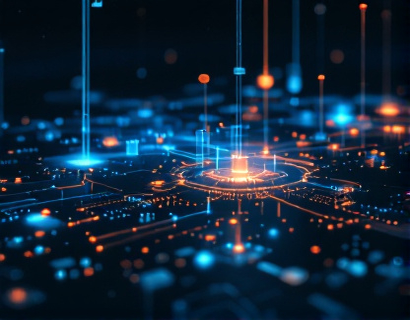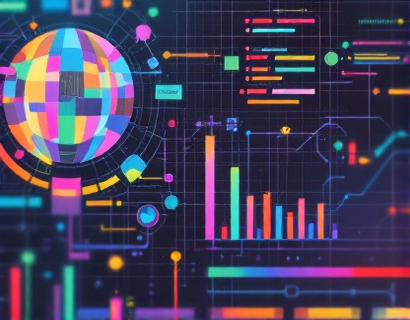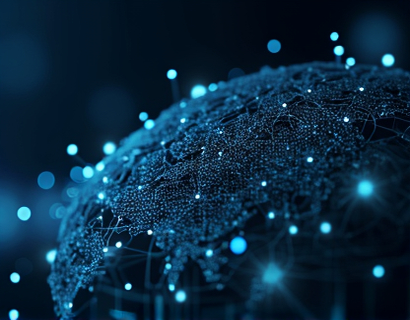Unlocking Enhanced Productivity in the Digital Age: The Synergy of AI and Cryptocurrency
The intersection of artificial intelligence (AI) and cryptocurrency is giving rise to innovative solutions that are revolutionizing the way we approach digital productivity. This fusion of technologies is not only transforming traditional workflows but also opening new avenues for tech enthusiasts and early adopters. As we delve into this topic, it's essential to understand how these cutting-edge technologies are intertwining to create a more efficient and streamlined digital experience.
The digital age has brought about unprecedented changes in how we work, communicate, and manage tasks. The advent of AI has introduced intelligent systems capable of performing tasks that traditionally required human intervention. These systems, powered by machine learning algorithms, can analyze vast amounts of data, recognize patterns, and make decisions with minimal human input. On the other hand, cryptocurrency has disrupted the financial landscape by providing a decentralized, secure, and transparent means of transaction. When combined, AI and cryptocurrency offer a powerful toolkit for enhancing digital productivity.
One of the primary ways AI is enhancing productivity is through automated task management. Smart assistants and virtual agents, driven by AI, can handle routine tasks such as scheduling appointments, managing emails, and even drafting documents. These AI-powered tools learn from user behavior and preferences, adapting to provide more personalized and efficient service over time. For instance, an AI assistant can analyze a user's calendar and suggest optimal times for meetings, taking into account the user's availability and past scheduling patterns.
Cryptocurrency plays a crucial role in this ecosystem by providing a secure and transparent way to incentivize and reward productivity. Blockchain technology, the backbone of cryptocurrency, ensures that transactions are immutable and verifiable, reducing the risk of fraud and increasing trust. In a productivity context, this means that tasks completed by AI or human agents can be tokenized and traded, creating a new economy where value is directly tied to productivity and efficiency.
Another significant application of AI in the digital space is in the realm of data analysis. AI algorithms can process and analyze large datasets to extract meaningful insights, which can then be used to optimize workflows and decision-making processes. For example, in project management, AI can analyze project data to identify bottlenecks, predict delays, and suggest corrective actions. This proactive approach to problem-solving can significantly enhance project outcomes and overall productivity.
Moreover, AI-driven predictive analytics can forecast trends and behaviors, allowing organizations to make informed decisions. By leveraging historical data and machine learning models, AI can predict future scenarios, helping businesses to stay ahead of the curve. This predictive capability is particularly valuable in industries where timing and foresight are critical, such as finance, healthcare, and logistics.
The integration of AI and cryptocurrency also opens up new possibilities for decentralized applications (dApps). These applications run on blockchain networks and utilize smart contracts to automate and enforce agreements without the need for intermediaries. In the context of productivity, dApps can facilitate collaborative work environments where tasks are assigned, tracked, and rewarded in a transparent and fair manner. For instance, a dApp could use AI to assign tasks based on user skills and availability, while cryptocurrency ensures that contributors are fairly compensated for their work.
Furthermore, AI can enhance the security and privacy of digital transactions. Blockchain's inherent security features, combined with AI-driven security protocols, can protect sensitive data and ensure that transactions are tamper-proof. This is particularly important in industries where data breaches and cyber threats are a significant concern. By leveraging AI to monitor and respond to potential security threats in real-time, organizations can maintain a high level of data integrity and user trust.
The combination of AI and cryptocurrency is also transforming the way we approach content creation and distribution. AI-powered tools can generate high-quality content, from articles and social media posts to marketing copy and even code. This not only speeds up the content creation process but also ensures consistency and accuracy. Cryptocurrency can be used to reward content creators based on engagement metrics, creating a new economic model where value is directly tied to user interaction and appreciation.
In the realm of education, AI and cryptocurrency are paving the way for personalized learning experiences. AI-driven platforms can adapt to individual learning styles and paces, providing customized content and feedback. Cryptocurrency can be used to tokenize educational achievements, allowing learners to showcase their skills and credentials in a verifiable and portable manner. This not only enhances the learning experience but also provides a new way to validate and monetize skills.
Another area where AI and cryptocurrency are making a significant impact is in supply chain management. AI can optimize supply chain operations by predicting demand, managing inventory, and streamlining logistics. Blockchain ensures that all transactions and movements are recorded transparently and securely, reducing the risk of errors and fraud. This combination can lead to more efficient and reliable supply chains, which are crucial for global businesses.
The financial sector is also benefiting from the synergy between AI and cryptocurrency. AI-driven algorithms can analyze market data to make informed investment decisions, while cryptocurrency provides a decentralized and transparent platform for trading. This fusion can lead to more efficient markets, reduced transaction costs, and increased access to financial services for underserved populations.
In the healthcare industry, AI can revolutionize patient care and medical research. AI algorithms can analyze medical data to diagnose diseases, recommend treatments, and even develop new drugs. Cryptocurrency can be used to secure patient data and ensure that medical transactions are transparent and tamper-proof. This can enhance patient privacy and trust in the healthcare system.
As we explore the potential of AI and cryptocurrency, it's clear that these technologies are not just complementary but mutually reinforcing. AI enhances the capabilities of cryptocurrency by providing intelligent and efficient solutions, while cryptocurrency provides a secure and transparent framework for AI-driven applications. Together, they are reshaping the digital landscape and opening new frontiers for innovation.
For tech enthusiasts and early adopters, the future looks promising. The ongoing development of AI and cryptocurrency technologies will continue to drive advancements in productivity and efficiency. As more organizations adopt these solutions, we can expect to see a significant shift in how work is done, with a greater emphasis on automation, transparency, and decentralization. The key for individuals and businesses alike is to stay informed and adapt to these changes, embracing the opportunities they present.
In conclusion, the fusion of AI and cryptocurrency is unlocking enhanced productivity in the digital age. By leveraging the strengths of both technologies, we can create more efficient, secure, and transparent systems that benefit everyone. Whether you're a developer, a business owner, or simply someone interested in the latest technological trends, understanding and embracing this synergy is crucial for success in the digital landscape.










































